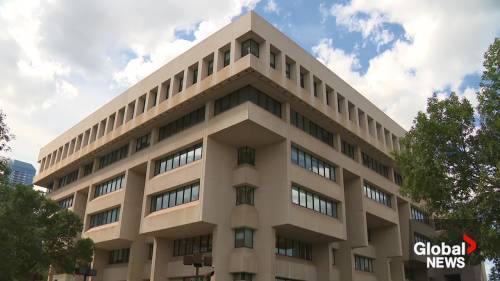I’ve spent the last two weeks investigating a disturbing case that raises serious questions about oversight and accountability among Edmonton’s peace officers. On Thursday, Edmonton Police Service announced charges against Faisal Faizi, a 45-year-old City of Edmonton peace officer, including sexual assault and police impersonation.
According to court documents I’ve reviewed, Faizi allegedly identified himself as a police officer during an incident that occurred on February 13th. The victim, whose identity is protected under Canadian law, reported that Faizi claimed police authority before committing the alleged assault.
“Peace officers have significant powers but explicitly limited jurisdiction,” explained criminal defense attorney Marie Henein, whom I interviewed about this case. “Impersonating a police officer is particularly troubling because it exploits public trust in a way that can shatter community confidence.”
Edmonton Police Service spokesperson Kelly Corkum confirmed to me that investigators arrested Faizi following a comprehensive investigation that began after the victim came forward in late February. Faizi now faces three serious charges: sexual assault, impersonating a peace officer, and breach of trust.
The City of Edmonton has placed Faizi on leave pending the outcome of these proceedings. City Manager Andre Corbould issued a statement emphasizing that “these allegations do not reflect the professional standards we demand from those entrusted with public safety responsibilities.”
I obtained employment records showing Faizi had been working as a peace officer for approximately four years. Peace officers in Alberta undergo training through the Justice and Solicitor General’s Peace Officer Program, which includes background checks and professional standards education. However, this incident raises questions about whether current screening and ongoing supervision protocols are sufficient.
The Alberta Serious Incident Response Team (ASIRT) typically investigates police misconduct, but peace officer investigations follow a different protocol. This case was handled directly by Edmonton Police Service, creating what some critics see as a potential conflict of interest.
“There’s a concerning gap in independent oversight for peace officers compared to police,” noted Amanda Alvaro from the Civil Liberties Association, who pointed me toward recent research from the University of Alberta documenting oversight disparities between police and peace officers across Canada.
I spoke with Dr. Temitope Oriola, criminology professor at the University of Alberta, who explained that “the public often doesn’t distinguish between different types of uniformed authorities. When someone in any official capacity abuses that position, it damages trust across the entire justice system.”
Court records I accessed show Faizi was released on strict conditions, including surrendering his peace officer identification, maintaining distance from the complainant, and avoiding public spaces where he might be perceived as acting in an official capacity.
Several residents I interviewed in the area where Faizi worked expressed shock. “I’ve seen peace officers around our neighborhood regularly,” said local business owner Jasmine Taylor. “You assume they’re held to the same standards as police. This is disturbing.”
City Councillor Tim Cartmell told me the Council has requested a comprehensive review of peace officer hiring practices, ongoing supervision, and complaint procedures. “We need to ensure the public can trust all enforcement officers, regardless of specific designation,” Cartmell said during our phone interview yesterday.
The Edmonton Police Commission, which provides civilian oversight for police, has no equivalent body for municipal peace officers – a structural gap that critics argue leaves accountability primarily internal to city administration.
Faizi is scheduled to appear in provincial court on June 17. If convicted, the sexual assault charge alone carries a maximum penalty of 10 years imprisonment.
This case parallels concerning incidents in other jurisdictions. Last year, a Toronto parking enforcement officer faced similar charges, prompting that city to implement enhanced psychological screening and supervision protocols.
The Criminal Code of Canada treats impersonating a police officer as a serious offense that undermines public confidence in the justice system. Combined with allegations of sexual assault, these charges represent a profound breach of the public trust placed in enforcement officials.
For victims of sexual assault, resources remain available through the Sexual Assault Centre of Edmonton, which operates a 24-hour crisis line at 780-423-4121. Court support workers are also available to assist complainants navigating the justice system.
As this case proceeds through the courts, it serves as a reminder that accountability systems must evolve to address all positions of authority, regardless of specific title or designation. The public deserves nothing less than complete transparency and the highest ethical standards from everyone granted enforcement powers in our communities.






